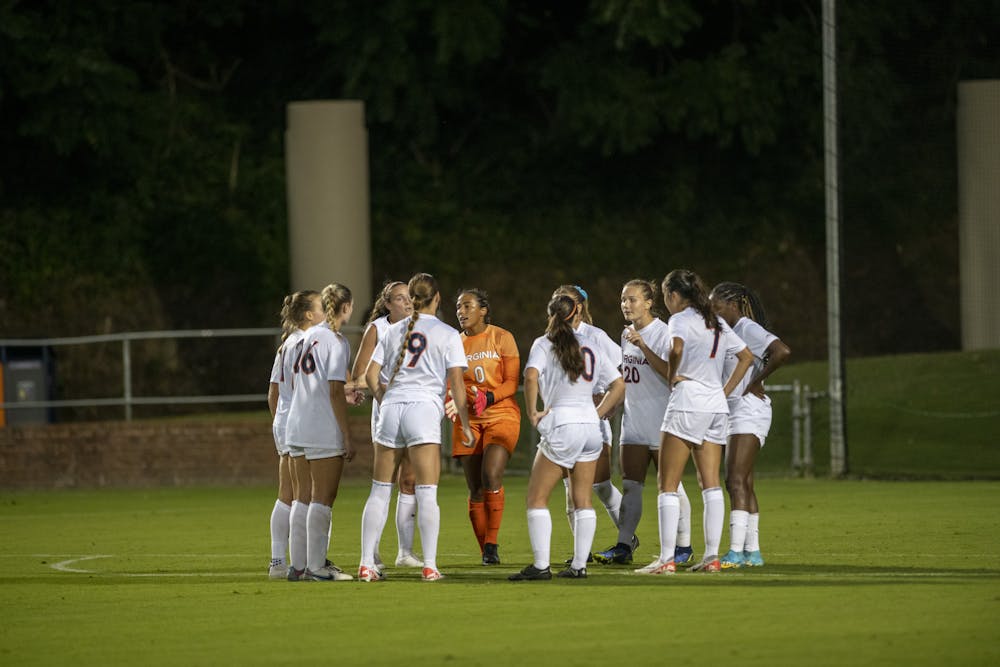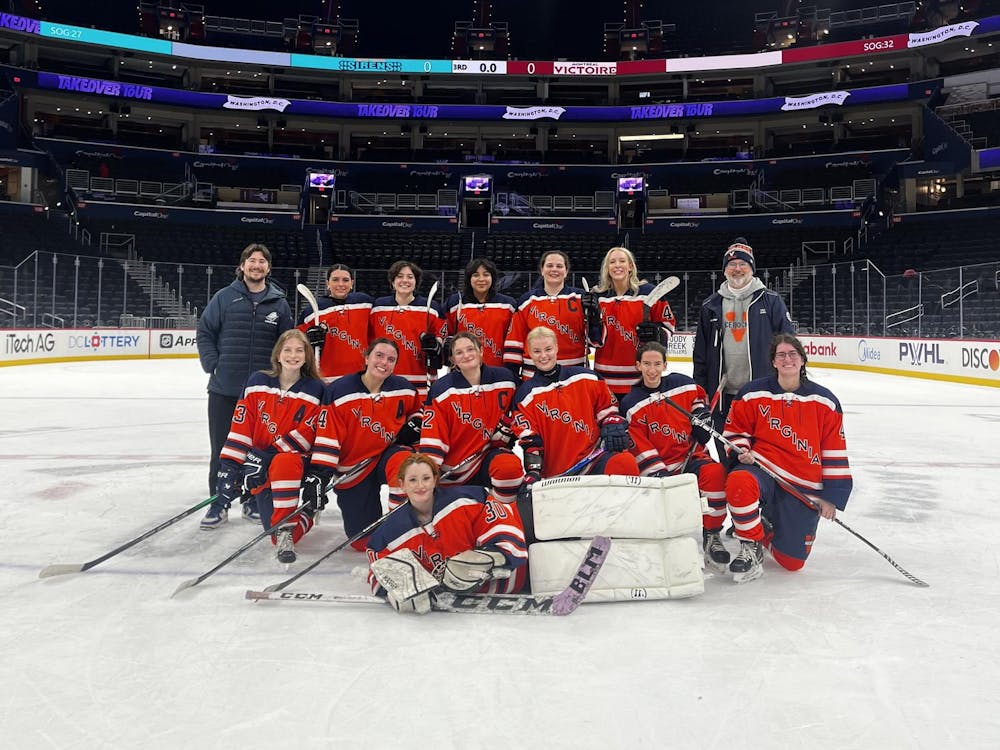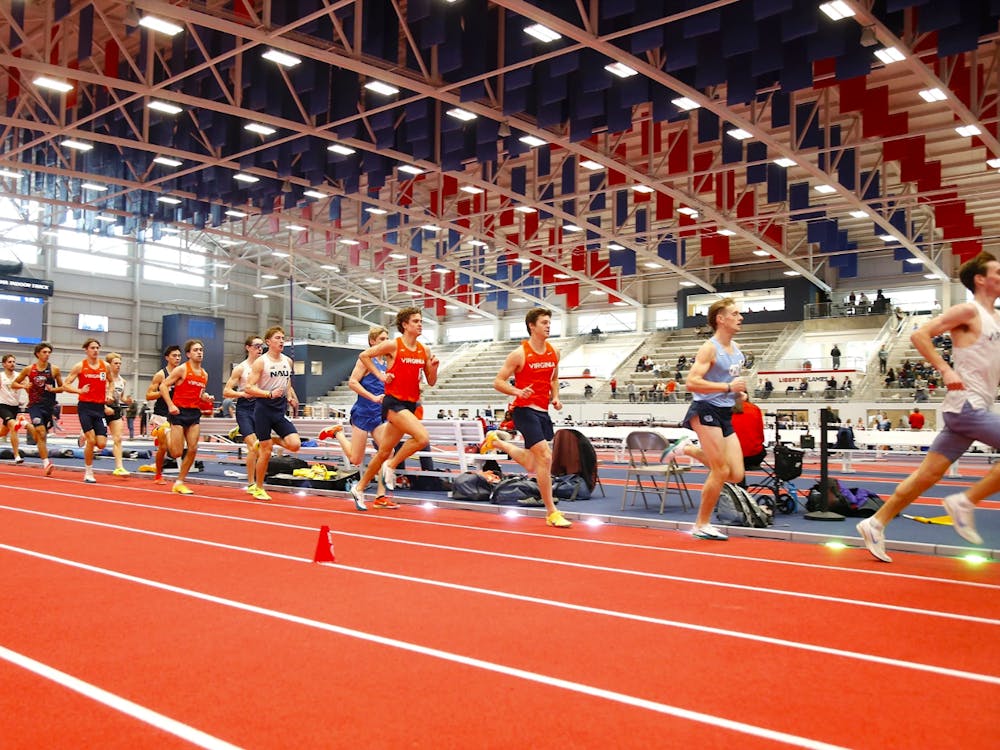The setting at Klöckner Stadium was the same as always for Virginia women’s soccer — the student section filled with orange and blue, Charlottesville families scattered on the hill opposite the bleachers and Coach Steve Swanson on the sideline.
Despite the familiar home setting, the Cavaliers (8-3-6, 3-3-4) may look back at their
underwhelming offensive performances at home as what kept them from playing in November.
The Cavalier defense did all they could, conceding just 11 goals on the season and collecting eight clean sheets. In home draws early in the fall, Virginia held Iowa and Michigan scoreless only to see its offense not convert key opportunities. The defense was not rewarded for its efforts, as each match concluded with scores of 0-0. Commanding possession throughout the Michigan contest, then-No. 5 Virginia came up empty from 15 shots and 7 corner kicks.
Virginia had its chances throughout the season for signature wins to boost its tournament resume, too. Hosting then-No. 1 North Carolina, Virginia went punch-for-punch with the nation’s top team, even outshooting its opponents 5-4 in the first half. But after a Tar Heel goal in the second half, the Cavaliers’ inability to create quality goal opportunities showed. Virginia connected for only two shots on goal in the 1-0 loss.
In a late postseason push, Virginia put its best game together against its rival, Virginia Tech. The Cavaliers had 19 shots, three of them reaching the back of the net while keeping a clean sheet. The 3-0 victory was the first conference win for Virginia through seven ACC games. While the course correction was welcome for Cavalier fans, it came too late.
After a 1-0 home win over Miami, Boston College ended Virginia’s tournament hopes. The winless team in ACC play came to Charlottesville and allowed just one goal on 15 shots, resulting in a 1-1 draw. At a time where the Cavaliers needed to assert their position in the ACC rankings and tournament discussions against a lesser opponent, they once more came up short. A Syracuse win later that week was not enough to send Virginia to the six-team ACC tournament.
Although the offense struggled, Swanson kept virtually the same starting lineup all season. Sophomore midfielder Jill Flammia and freshman midfielder Yuna McCormack stole the show as starters, pickpocketing opponents at midfield and dribbling their way deep into enemy territory. In one of the most important goals of the year, McCormack fired a cross from deep into Clemson’s territory, which trickled to the feet of Flammia for an away goal against the Tigers. However, the match concluded a 1-1 draw, another instance of split points in a conference matchup where Virginia simply needed more.
Given this season’s low-octane offense, it would not have hurt to place these skillful dribblers in closer proximity to the forwards. As a midfielder, Flammia had more shots on goal in less games than starting sophomore striker Merideth McDermott. Flammia and McCormack proved valuable in stopping attacks in the midfield, but their positioning and defensive responsibilities limited the offensive potential of the Cavaliers.
This season was, among other things, an outlier. The roster was filled with top recruits and returning talent, along with a legendary head coach entering his 24th season with the program. Just a season ago, the offense was potent and has the ability to reach similar highs with roster and positioning adjustments.
In 2022, Virginia totaled 56 goals in large part to former Cavalier star striker Haley Hopkins. With less pressure to score herself, sophomore Maggie Cagle played a facilitating role that year, dishing out an ACC second-best 12 assists. To get the offense back in prime shape, Virginia needs to find efficient forwards so Cagle — the heart of the team — can play her game. Additionally, despite missing the postseason, Swanson’s starting forwards — McDermott, Cagle and freshman Allie Ross — will come back with more chemistry and experience.
On the defensive side, the Cavaliers will likely lose graduate goalkeeper Cayla White, along with graduate defenders Lacey McCormack and Samar Guidry. However, freshman goalkeeper Victoria Safradin will have no problem picking up the slack — the No. 9 recruit in her class per Top Drawer Soccer has played in high-pressure games representing the United States.
Virginia ended the season with only three losses, which is less than many of the teams that earned bids for the 64-team NCAA tournament. However, six low-scoring draws failed to make a compelling case for postseason play. Many of the selected teams outdid the Cavaliers in wins, such as 15-win conference foe Pittsburgh. Improved scoring, especially at home, can easily propel Virginia back to ACC and NCAA title contention.
Virginia will soon be back at Klöckner for night games, its starting 11 taking their positions as fans stomp on the metal bleachers to “Thunderstruck” by AC/DC. With orange hues forming over the distant mountains at kickoff, the Cavaliers will have something to prove.







